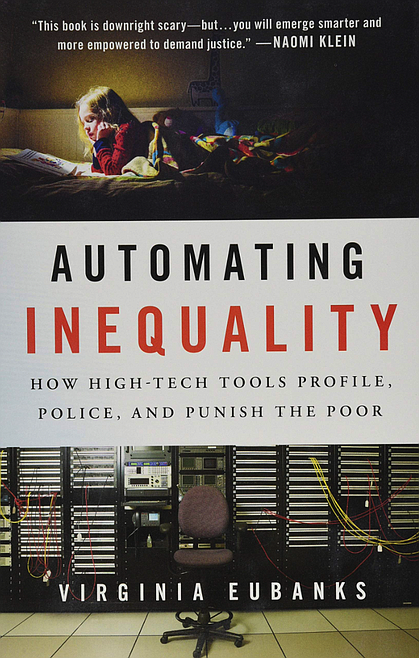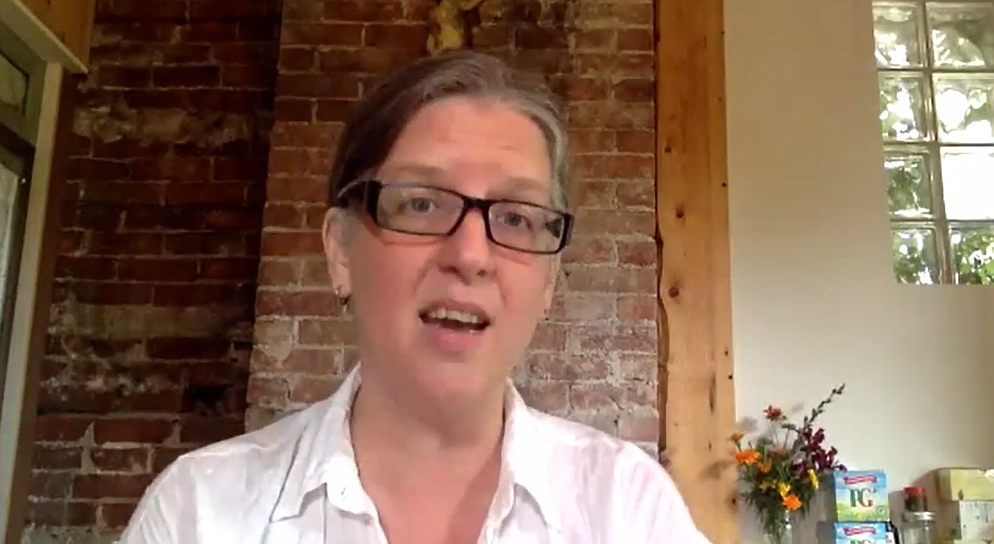How automation makes or breaks a nation
DEVIN WEEKS | Hagadone News Network | UPDATED 5 years, 2 months AGO
Devin Weeks is a third-generation North Idaho resident. She holds an associate degree in journalism from North Idaho College and a bachelor's in communication arts from Lewis-Clark State College Coeur d'Alene. Devin embarked on her journalism career at the Coeur d'Alene Press in 2013. She worked weekends for several years, covering a wide variety of events and issues throughout Kootenai County. Devin now mainly covers K-12 education and the city of Post Falls. She enjoys delivering daily chuckles through the Ghastly Groaner and loves highlighting local people in the Fast Five segment that runs in CoeurVoice. Devin lives in Post Falls with her husband and their three eccentric and very needy cats. | September 26, 2020 1:00 AM
Robots don’t have hearts.
Algorithms can’t feel empathy.
So why are they making important decisions that can ruin people’s lives?
Virginia Eubanks' 2018 book, "Automating Inequality: How High-Tech Tools Profile, Police, and Punish the Poor" discusses these issues and many more relating to computer programs and the way in which society uses and depends on them, many times to a fault.
“I’m really excited to be talking about the book at a time when the stakes feel so very high around data and government and wellness of our families and our communities,” Eubanks said. “I feel like it’s just such an important time to be having this conversation."
Eubanks, an associate professor of political science at the University of Albany, State University of New York, participated in a Zoom session with about 50 people on Wednesday as part of North Idaho College's Cardinal Reads program launch.
Cardinal Reads is an NIC Diversity Council program that provides book selections in coordination with a biennial theme to encourage diversity awareness on campus. The theme for 2020-2022 is "Common Ground: Science, Technology and Society." Eubanks’ “Automating Inequality” was selected by the Cardinal Reads Committee from 16 books suggested by members of the NIC community.
She said it’s a book that explores how "if we don't attend to issues of social justice and inequality, we, even with the best of intentions, can build a world we don't actually want to live in.”
The book asks readers to think about why humans are turning to computers to make decisions about thorny political problems such as child abuse and neglect and the housing crisis, she said. As professors, she said, those in that profession have to decide which programs to use and whether they want to depend on humans, who are flawed, or computer programs that can lead to a more policing-type style of teaching.
In the book, Eubanks also investigates the impacts of data mining, policy algorithms and predictive risk models on poor and working-class people in America. The book is filled with heart-wrenching and eye-opening stories, including a woman in Indiana whose benefits are cut off as she is dying, to a family in Pennsylvania in fear of losing their daughter because they fit a certain statistical profile.
"It’s fundamentally a book about people and how they interact with programs that are supposed to help them," Eubanks said.
NIC student Victoria Williams participated in the discussion. She said everything Eubanks said "touched me in some way."
"I really started noticing (this) as a teenager, when I was really comprehending what was going on in the world around me," Williams said. "She's speaking the truth. From my perspective, she's right on par with everything."
The next Cardinal Reads session to dive further into this book will be on Zoom Oct. 21 from 1 to 2:15 p.m.
Cardinal Reads is also featured by NIC Community Conversations, a lecture and event series designed to foster engaging, informational discovery and thoughtful discourse related to cultural, economic, environmental, social and political issues affecting the people of North Idaho and beyond.
Community members interested in reading “Automating Equality” may inquire at the check-out desk in the Molstead Library on campus, 1000 W. Garden Ave., Coeur d’Alene.
Info: www.nic.edu/cardinalreads or [email protected]
ARTICLES BY DEVIN WEEKS

Hayden Canyon students work with nonprofit to build beds for youths in need
Hayden Canyon students work with nonprofit to build beds for youths in need
Wearing safety gloves and magenta headphones with a galaxy design, Autumn Parks rested a long piece of lumber on a picnic table as she smoothed out the edges. “I’m sanding it down so nobody gets splinters when they go to bed," she said. As an American Heritage Girl, Autumn already had some experience working with lumber. “I made a staff this August, a walking stick, and it taught me how to sand,” she said. “I thought, 'I can sand, let’s do that!” The Hayden Canyon Charter seventh grader shared how she thought it was really cool that her school was building beds for kids in need.

Steve Casey left his mark as dedicated educator, friend, family man
Steve Casey left his mark as dedicated educator, friend, family man
Solid leadership. A dedicated educator. A friend to everyone. Steve Casey lived a big, beautiful life and embraced every single person who came across his path. "Children, men, women, students, it didn't matter their walk of life," Casey's daughter, Tara Nelson, said Friday. "His arms were wide open and his heart was open to everyone."

Controversial AI exhibit at Art Spirit Gallery runs through Dec. 24, community event Saturday
Controversial AI exhibit at Art Spirit Gallery runs through Dec. 24, community event Saturday
Mike Baker installed his exhibit at the Art Spirit Gallery hoping it would generate conversations in the community. And wow, did it ever. "No Permission Needed," featuring pieces created using artificial intelligence, debuted Nov. 14 at the downtown gallery. It quickly became a subject of social media discussion and scrutiny in the arts community and the community at large for the use of AI and female experiences being brought into focus by a male, with some accusing Baker of misogyny, art theft or posing as an artist while others defended the intention behind the project and the exploration of a new technology-based medium. "At the end of the day it’s focused on women’s health, all rooted in the work we’ve done around endometriosis and tied to the experiences people have shared with me and that I’ve seen walking through the health care system,” Baker said Thursday. “I was just trying to capture all of that within it."



